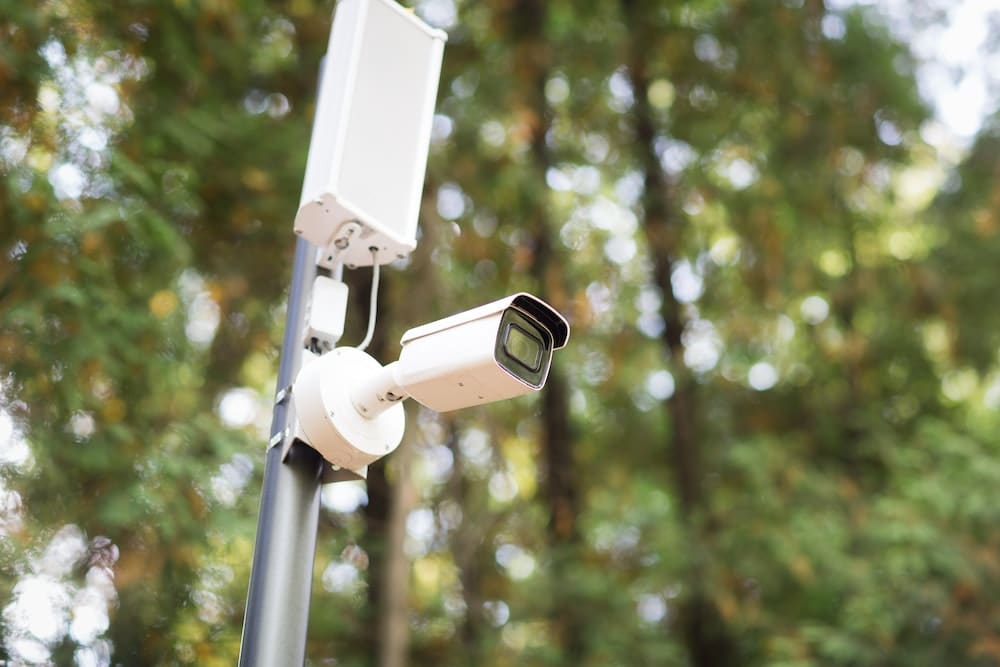What Are the Best Smart Home Options to Monitor Elderly Relatives Remotely?

In an age where technology is constantly evolving and impacting every sphere of our lives, caring for our elderly loved ones has also seen a paradigm shift. Smart home monitoring systems have emerged as a game-changer, offering peace of mind to caregivers and ensuring the safety, health, and wellness of seniors. These devices help in managing care from a distance, making it easier for families to keep a check on the elderly without invading their privacy or compromising their independence. In this article, we will explore some of the best smart home monitoring options available today for the elderly.
User-Friendly Devices for Seniors
Seniors may often be hesitant to adapt to new technology, making it crucial for smart home devices to be user-friendly. Given the diversity in the digital literacy of older adults, it is important to choose devices that are easy to understand and operate.
Lire également : How to Design a Multifunctional Mudroom with Pet Cleaning Station?
Google’s Nest Hub Max is one such option. With an intuitive interface, large bold text, and simple commands, it is designed keeping in mind the needs of seniors. It is equipped with a smart camera that recognises gestures. This means that seniors can control the device without the need to remember complex commands or press small buttons. It also features a built-in Nest Cam that can be accessed remotely by caregivers, providing real-time updates.
The GrandPad is another popular device among seniors. It’s a simplified tablet with pre-installed apps that cater to the needs of the elderly, such as calling, emailing, photo sharing, news, and games. It’s designed for those with little to no tech experience and offers 24/7 customer support.
En parallèle : What’s the Most Stylish and Durable Stair Runner for a High-Traffic Hallway?
Monitoring Systems for Health and Wellness
Health issues and medical emergencies are a significant concern for caregivers of seniors living alone. Remote health monitoring systems can help alleviate these concerns.
The Health Mate system by Withings is a prime example. This home monitoring system can be coupled with various devices like a smart scale, a sleep tracker, and a blood pressure monitor. All the health data is synced to a mobile app, providing caregivers with regular updates.
Similarly, Lively Wearable2 by GreatCall is a watch-like device that not only monitors daily activities but also has a dedicated button for emergencies. When pressed, it connects to a response centre where trained professionals can assess the situation and take necessary actions.
Smart Home Security Systems
Security is of utmost importance when it comes to the elderly living alone. Smart home security systems can help ensure their safety.
One of the best options in this regard is the Arlo Pro 3 home security camera. It provides crystal clear video and audio both day and night. Not only does it have an extensive field of view, but it also offers colour night vision, spotlight, siren, and two-way audio. It can be placed anywhere in the home and provides real-time alerts to caregivers’ phones.
The Ring Alarm Home Security System is another great option. It offers seamless integration with other Ring products and Alexa, providing comprehensive home protection. It sends alerts to smartphones when doors or windows are opened or when motion is detected.
Sensors for Elderly Care
Installing sensors in the homes of seniors can provide caregivers with useful insights into their daily routines and alert them in case of any anomalies.
One such product is the Alarm.com Wellness system. It uses a network of sensors to learn the daily routines of seniors, such as when they wake up, sleep, eat, or leave the house. If there’s any deviation from these routines, caregivers are alerted. It also connects with medical alert pendants and fall detectors for emergency situations.
The Eve Room device is excellent for monitoring indoor air quality. It measures temperature, humidity, and volatile organic compounds, which can aggravate health conditions. It can help caregivers ensure the loved one’s environment is comfortable and safe.
Assistive Technology for Elderly
Assistive technology can greatly enhance the quality of life for seniors, making daily tasks simpler and safer.
Amazon’s Echo Show is a versatile device that not only offers entertainment but also serves as a personal assistant. It can be used to set reminders for medication, appointments, or to make video calls. With its voice recognition technology, seniors can use it without needing to navigate complicated menus.
The Tile Mate is a small device that can be attached to keys, wallets, or any other items that are frequently misplaced. The elderly can simply use their smartphone to make the Tile ring, making it easier for them to locate their items.
The world of smart home monitoring for seniors is vast and constantly evolving. By leveraging these technologies, caregivers can ensure their loved ones are safe, healthy, and comfortable. It can also offer seniors the independence and dignity they deserve, while providing peace of mind for their families.
Home Automation for Senior Care
Home automation technology is another invaluable tool in the arsenal of elderly monitoring. With this system, caregivers can remotely control lights, thermostats, locks, and various other aspects of a senior’s home, ensuring their comfort and safety.
Google Home and Amazon Alexa are prime examples of home automation. They offer voice-controlled smart speakers that can manage a multitude of tasks. This includes controlling lights, adjusting thermostats, playing music, setting reminders, or even calling for help. Both these devices can be integrated with a variety of home appliances, enhancing the scope of control for caregivers.
Vivint Smart Home, another commendable platform, provides comprehensive home automation and security in one package. It includes doorbell cameras, smart locks, security cameras, and environmental controls which can all be managed remotely. With real-time alerts and 24/7 monitoring, it ensures the safety and well-being of older adults.
An important feature in home automation is fall detection. Systems like Apple’s Watch Series 4 and above, include a fall detection feature that generates an alert and initiates a call to emergency services if it detects a fall. This proves to be extremely crucial for seniors living alone.
Voice-Activated Assistants
Voice-activated assistants have proven to be very handy for seniors, making their lives easier and more convenient. They can be used for a variety of tasks, including setting reminders for medication, checking the weather, playing music, or calling family members.
Google’s Assistant and Amazon’s Alexa are two of the most popular voice-activated assistants. Alexa is quite versatile and can be used to control a wide range of smart devices. It’s also capable of calling or messaging anyone on a user’s contact list, a particularly useful feature for seniors who may need immediate help.
Google Assistant, on the other hand, offers similar capabilities but has the added advantage of being able to answer a wider range of questions due to its robust search engine capabilities. It can provide information on various topics like news, recipes, or general trivia, thereby keeping seniors engaged and informed.
Conclusion
With the right blend of smart home devices, caregivers can ensure the safety, health, and comfort of their elderly loved ones while allowing them the dignity and independence they deserve. Home monitoring systems, security systems, assistive technology, and home automation not only provide peace of mind but also make aging in place a viable and safe option.
The range of available options is vast and is only set to grow with the continuous evolution of technology. It is imperative to choose a system or device that aligns well with the needs and preferences of the older adult in question. The perfect balance between automated monitoring and personal care will undoubtedly lead to a happier, healthier, and more secure environment for our loved ones.
